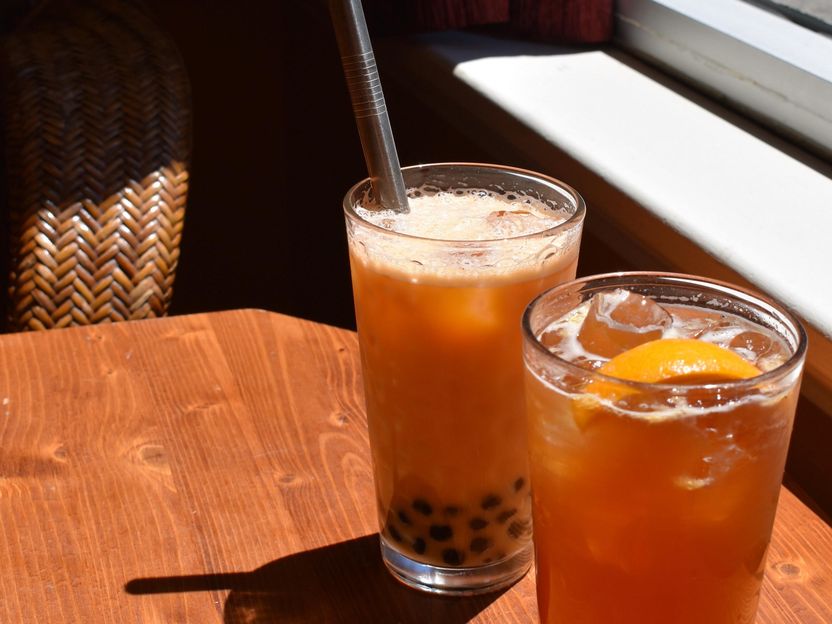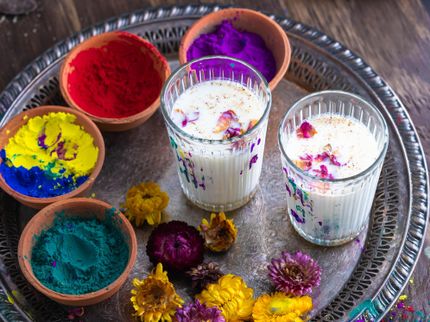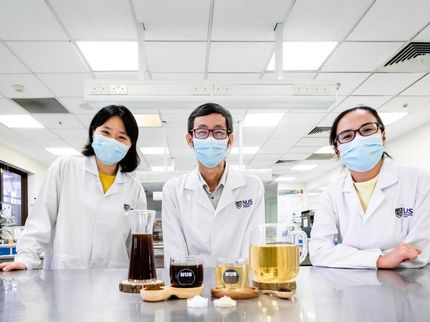Chinese consumers love bubble tea, but also want health
Advertisement
Founded in 1783, TongHanChun Hall is the veteran of the traditional Chinese medicine industry. The main store in Yuyuan, Shanghai has been renovated and opened earlier this year with the addition of a new tea store. The health and wellness milk tea introduced is carefully formulated with natural ingredients. Monkfruit fructose dispels concerns about sweetness, adding ginseng and other nourishing natural Chinese herbal ingredients; the outer packaging is full of new ideas with miniature wine bottles and coke bottles.

Photo by J. Remus on Unsplash
In addition, the Australian professional nutrition brand Swiss has also collaborated with Tmall Club to create a new “Nutrition Teahouse” theme store. Each drink is filled with Swisse’s series of star products.
Adding good-for-you ingredients to beverages has tapped into the current trend of healthy eating that Chinese consumers love.
The dual need for indulgence and health
We are seeing more traditional Chinese pharmacies and nutritional supplement brands participating in the fresh tea beverage market, indicating the complex demand for fresh tea beverages by Chinese urban consumers – both indulgent and healthy. For example, two of the brands mentioned above have herbal, functional and nutritional claims in their tea beverage portfolios, including benefits for digestion and beauty. Mintel has found that there is a growing consumer demand for edible beauty and gut health products. Over the past three years, new product launches of beauty foods, beverages and supplements across Asia Pacific have increased by 49%. Clearly, the trend of indulgence and health going hand in hand will be further amplified in the post-pandemic era.
With more brands entering the market, how should they attract more consumers?
The tea beverage industry in China is now quite saturated, and Chinese consumers have quite mature tea beverage consumption and other consumption habits. The penetration of fresh tea beverages among Chinese consumers has remained stable at 70% over the past year, with more than half of consumers spending RMB 16-30.
In fact, product innovation has become a norm. This means that Chinese consumers already take it for granted.
Mintel data shows that one-third of Chinese urban consumers are willing to spend more than RMB 30 on a cup of tea, which gives brands more confidence in turning tea beverages into delicate desserts with a variety of toppings and toppings. On the other hand, capable brands are creating a third space for consumers to enhance consumer experience and brand awareness, aiming to increase user retention and consumption frequency.
What Mintel Thinks
Looking ahead, brands need to increase consumer loyalty by building brand awareness. For example, by collaborating with different sectors across borders, offering products and services with more added value, etc. Of course, for supplement brands, they can leverage their inherent strengths by emphasizing BFY (Better for You) features.
In addition, consumers value the joyful experiences of the past, as described by the key driver of the Mintel Trend Driver ‘Nostalgia,’ which fits with some brands’ deeper understanding of how past experiences shape consumer identity. In addition, the fusion of nostalgic snacks with popular tea beverages also brings a collision of old and new elements to consumers.
































































